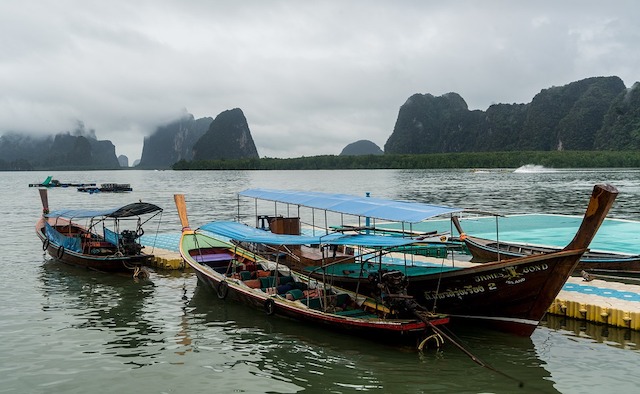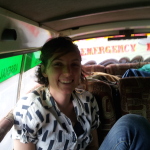Coming to Terms with Reverse Culture Shock

No one ever talks about it. How was I supposed to know it was happening to me? I’ve always felt out of place and alone, but there was something different about this. This was crushing, nearly debilitating. This made me sit at my computer while I attempted to write, something that had always been therapeutic for me, and gaze into nothingness while my fingers rested still on the keys. This was ‘reverse culture shock’.
I had never heard of reverse culture shock until my mom gave me a Lonely Planet guide to volunteering internationally. I had just returned home from a two-year stint volunteering overseas, and was quietly struggling with the adjustment. While casually flipping through the book hoping to see amazing photos of exotic destinations, I came upon a chapter about this very serious, very common but not very well-known condition.
After two solid years of traveling, I hit a wall. I had been traveling internationally as a marine conservation volunteer; globe-trotting with a carefree passion, meeting foreign people in intoxicating lands, discovering new ways of life, learning about cultures I had read about in National Geographic as a little girl, all the while volunteering for a cause I was very passionate about. I was living; I felt alive. But eventually, I became tired. I was tired of sleeping on couches, tired of saying goodbye to people I had come to love deeply in such a short amount of time, and tired of being so alone, yet always surrounded by people.
How was I to explain what I had experienced to someone who hadn’t had the same, or similar, experiences? I didn’t. I couldn’t. How could I convey the wonders of Italian history or the harrowing sorrow of seeing Libyan refugees on rafts afloat in the Mediterranean?
So I decided to move home to Bellingham, Washington State, and attempt to conform to the societal norms of a woman in her early thirties. As is common with any honeymoon phase, I was blissfully in love with life, with being home and surrounded by my friends.
Yet as time went on and the novelty of being stationary wore thin, I realized that I was struggling to connect with the people I had always known, the people I had known in the life I lived before I started traveling. How was I to explain what I had experienced to someone who hadn’t had the same, or similar, experiences? I didn’t. I couldn’t.

How could I convey the wonders of Italian history or the harrowing sorrow of seeing Libyan refugees on rafts afloat in the Mediterranean? How could I put into words the paralyzing horror of standing at the Cove watching the ocean turn red with dolphin blood (as depicted in the documentary, The Cove)? I didn’t. I couldn’t. I kept it inside and hid the fact that I could still hear dolphins crying in my mind every second of every day.
I denied my PTSD, smiled through the internal pain and wondered what was so terribly wrong with me that I could no longer connect with the people I loved most. I couldn’t share the magic and romance of walking hand-in-hand with a man I loved through cobblestone alleyways in Barcelona while he sang to me because, really, how could I find the appropriate words for something like that?
I couldn’t share the soul-touching charm of living in Japan, which has a beauty that can only be known through experience.
When I moved home, I became painfully aware that when I would share my stories of adventure and travel, people were either ambivalent, jealous or were so intrigued that they claimed I was living the life of their dreams and treated me like a demi-god. I strive to advocate that it’s possible for anyone to live the life of their dreams. And while I’ll admit that my life did seem romantic, and often was, I also felt heavily burdened by the challenges I’d faced.
I had sacrificed a great deal to become an international volunteer: I gave up my financial stability and my marriage. Although I feel that it was worth it, I also felt so very alone, all the time.
Check out Pink Pangea’s Writing, Yoga, and Meditation Retreats.
Once I realized how much of a struggle being home was, I learned to hide the crushing, life-sucking feelings that were happening inside me. I hid the tears and the sorrow, the longing for the beautiful world, because I couldn’t properly convey what I was feeling without sounding like I was desperate to escape the stable life that I had chosen to return to.
Yet everything in my life was so frustratingly unfamiliar: I would forget which side of the road I was meant to drive on, which currency was in my wallet, whether I was supposed to greet someone with a handshake, a hug, a kiss on the cheek or a bow. The things that had always been so easy and familiar were now monumentally difficult.
Eventually, I integrated back into the community and those feelings of confusion subsided, if only a little. The longing, craving and overwhelming desire to witness foreign lands, however, has never ebbed. Nor will it ever, I don’t think. Once you experience the world, you can never forget it.
When I would share my stories of adventure and travel, people were either ambivalent, jealous or were so intrigued that they claimed I was living the life of their dreams and treated me like a demi-god
Reverse culture shock is very real, and my research shows that it’s more devastating than culture shock because you come home to a place you loved, to the people you loved, and realize that everything has changed. You’ve changed. My time overseas reprogrammed my entire being; my soul was awakened by the experiences I had and it was now impossible to be satisfied with a fortnightly paycheck, a sports-shifting Subaru and a downtown apartment. My tolerance for mindless submission to the American Dream was now non-existent.
Those first years being home were the most challenging of my life, and yet knowing that there’s a wide, magical world out there waiting to reveal its secrets when I’m ready for them again gives me the hope that I need to keep going. This world is stunning, and reverse culture shock, while a very difficult thing to experience, is something that should not be allowed to ever tamper your wanderlust.









This is really old so my comment might get overlooked, but it speaks to the rarity of finding ANYthing on this subject!
Imagine what you went through, but you were forcefully moved by your parents and 4 of your formative years were spent in a culture that became your own. Then you are forced to move back to the US without anyone preparing you for how different it would be. I was no longer an American although I look and talk like one and to this day, almost 50 years later, still feel like I’m in limbo. Some of us never recover… never find home on Earth.
It was a rich life overseas and I wouldn’t change it for the world, but it does make it very difficult to find anyone who can relate. It comes as a huge relief to find someone whose experience at least overlaps with my own. Thank you for posting this.
Libby, Great writing. Keep on doing what you are doing. Never worry what others think you should or ought to be doing. Follow your dreams and be happy. Love to you always, Irene
This is beautifully written and so honest and true. I had the same experience when I lived through a devastating hurricane on a remote island in the Bahamas. Months later, when I went back to the Florida Keys, a place I had started to call home, I found that people were ambivalent to my story. They did not want to travel outside their bubble even in conversation to hear about a fear that spoke through the eyes. They did not want to relate. They couldn’t relate. So I took a leap and made a fresh start all the way across the U.S. It has made all the difference.
(And P.S. that fresh start is Seattle so when I make it to the San Juan Islands one day, we will talk all things wildlife conservation and travel and Pink Pangea!)
Welcome to the beautiful Pacific Northwest, Stacey! I would love to have a visit with you if you make it out to San Juan Island! You should come whale watching on the boat I operate this summer! 🙂 ~Liberty
You have experienced what people only dream of doing, but afraid to venture out to do. Keep on living and learning, be happy.
Libby, I loved this article, and it certainly makes sense to me. You expressed your feeling succinctly. I love you very much. Your Aunt Sharon